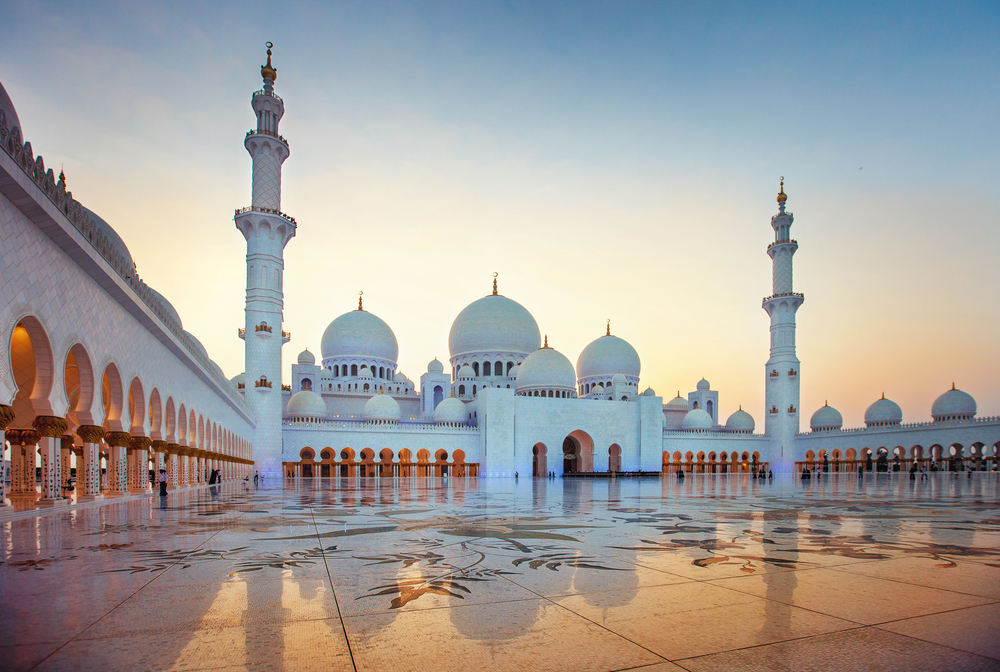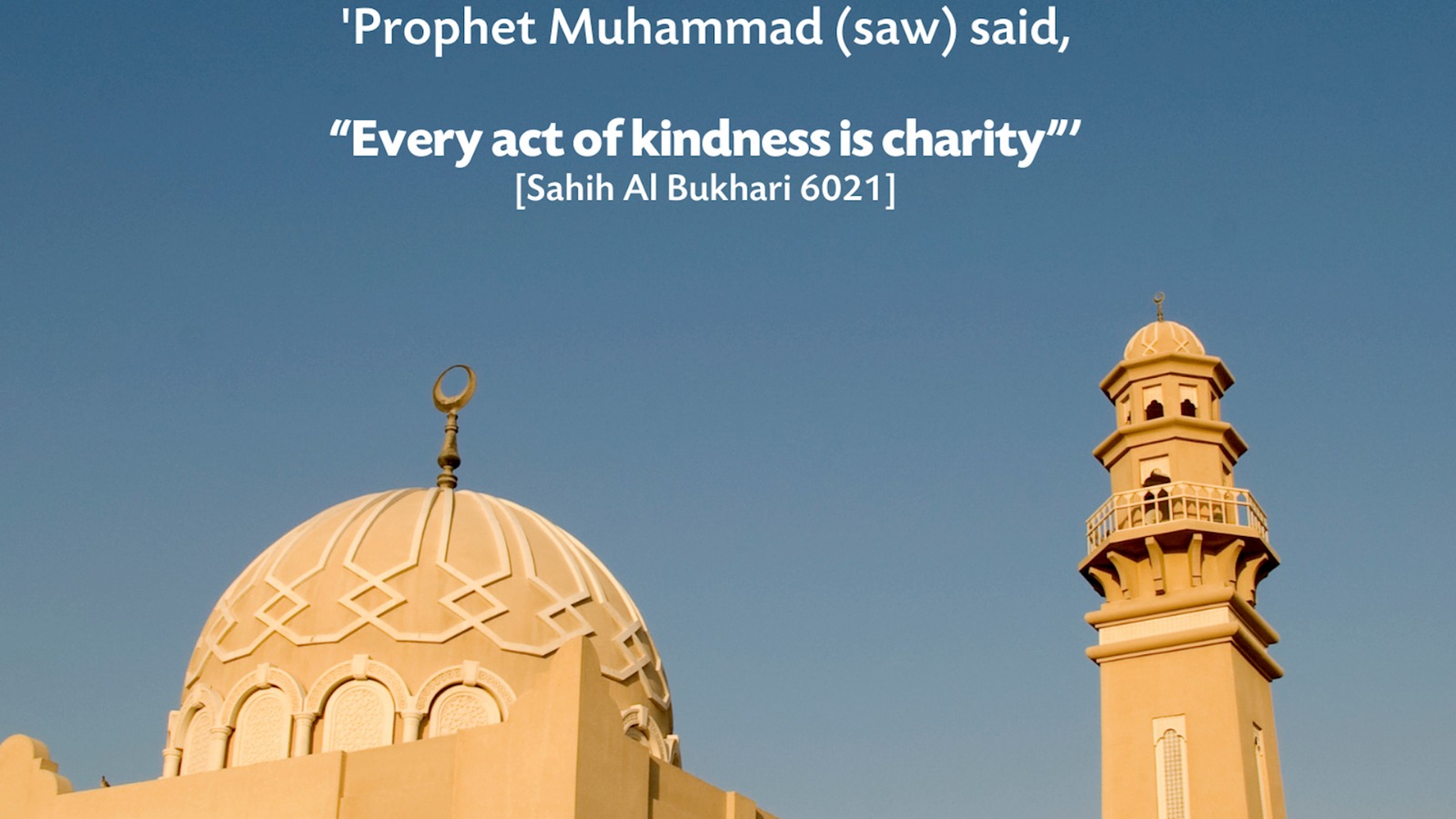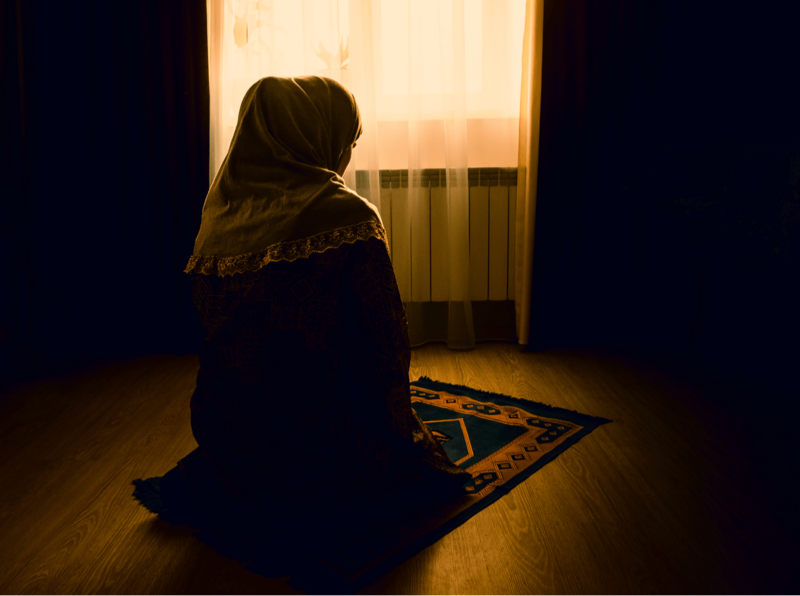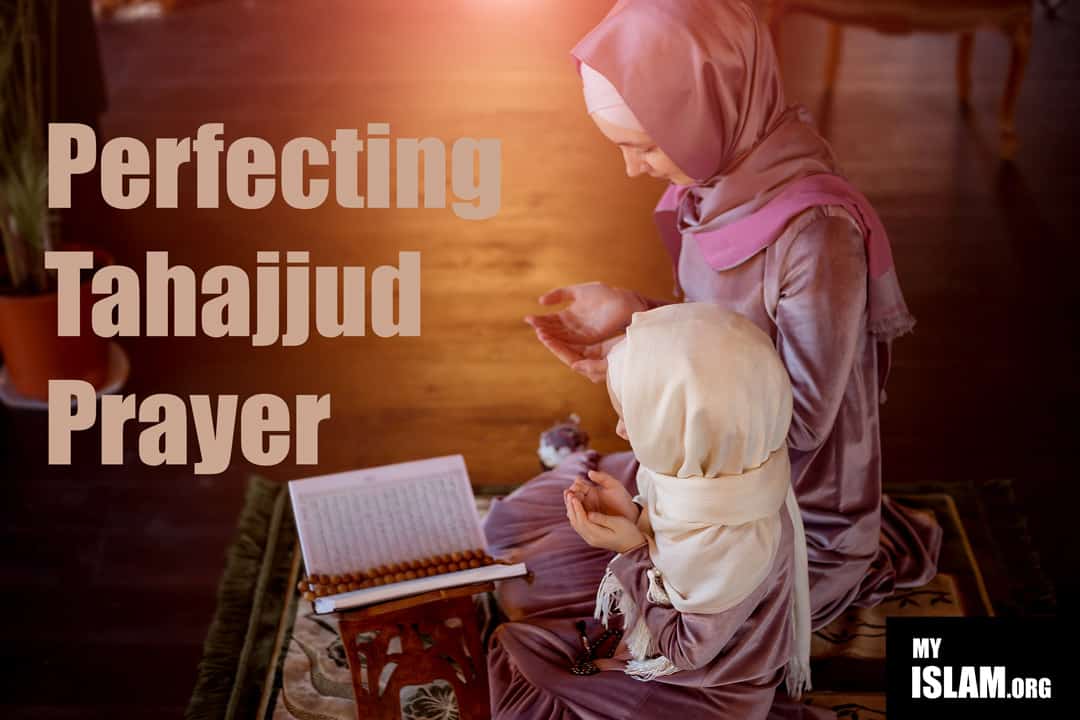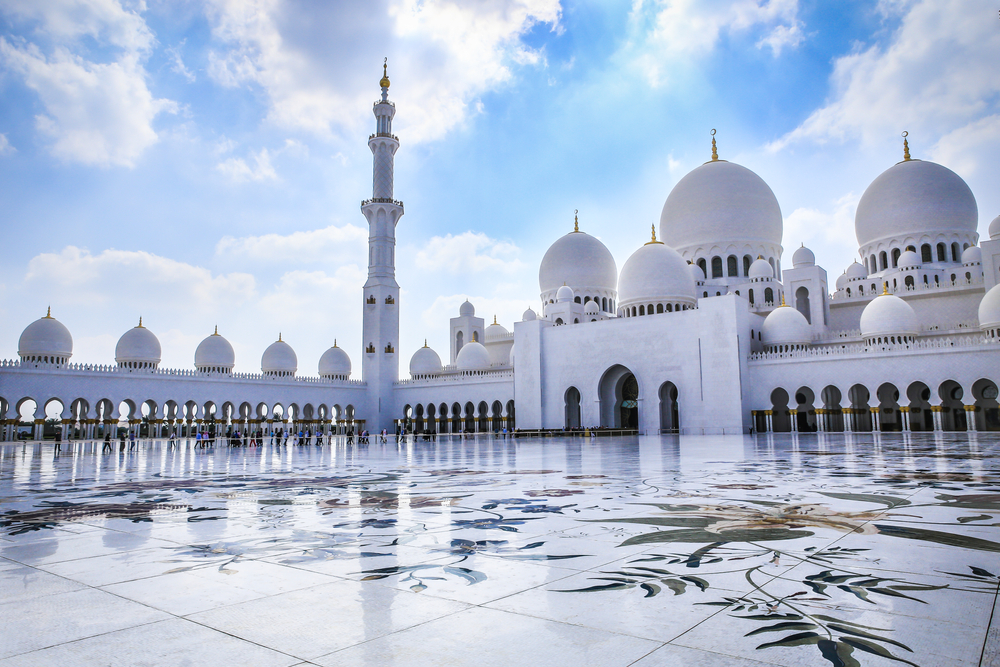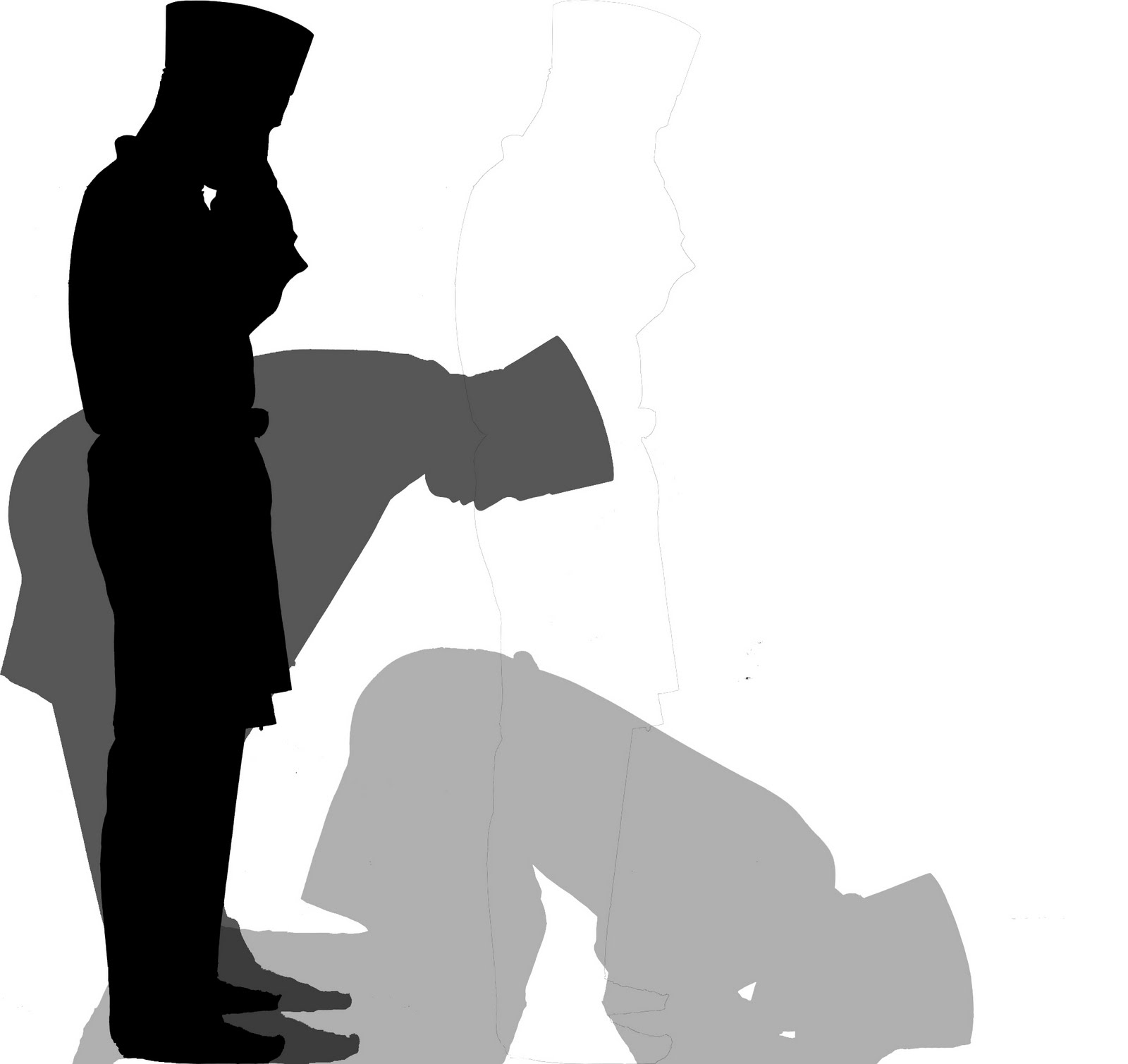
The word “Islam” is an Arabic word that means submitting and surrendering your will to Almighty God. The religion of Islam is the acceptance of and obedience to the teachings of God, which He revealed to His last Prophet Muhammad (pbuh).
*Pillars of Islam*
There are five key practices that all Muslims are obligated to fulfil throughout their lifetime. These practices are referred to as pillars because they form the foundation of Muslim life.
Each of the five pillars works in tandem with one another to bring the essence of Islam as a religion of peace and submission to Allah SWT into the lifestyle of every Muslim:
1.Monotheism and the belief in Prophet Muhammad (peace be upon him) as the last messenger of God is the central tenet of Islam around which everything else revolves, and reciting the Shahada (shahadah) in prayer each day serves to remind Muslims of this integral belief.
2.Salah (salat) occurs five times a day and offers five different opportunities for remembrance of Allah SWT and our purpose in this life to worship Him.
3.While Sadaqah (charity) is greatly encouraged to be a part of everyday Muslim life, it is obligatory to offer Zakat (alms) once a year, ensuring that wealth is continuously redistributed to those who are in need of it.
4.The month of Ramadan requires every Muslim to abstain from their most basic needs and desires, like food, drink, and sexual relations for a period of time each day. Every year, the Sawm gives Muslims the opportunity to gather control over their human needs. Without these distractions, Muslims can instead nurture good conduct and their connection to Allah SWT.
5.During the Hajj (pilgrimage), Muslims must each wear the same simple garments and perform the same ritual acts of devotion to Allah. Stripped of worldly distinction, people are reminded that all are equal before God.
These five pillars are of great importance in Islam. They are not the whole of Islam, but Islam would be incomplete without them.
*Belief:*
There are six articles to belief;
1. Belief in God.
2. Belief in the angels.
3. Belief in God’s revealed books.
4. Belief in the Prophets.
5. Belief in the Day of Judgment.
6. Belief in Al-Qadar (divine predestination).
• Belief in God is to believe that He is One, The Creator, Sustainer, Provider, and the One who disposes of all affairs.
• Belief in the angels is to believe that they exist and that they are honoured creatures. Angels are created from light, who worship God alone, obey Him, and act only on His command. Among the angels is Gabriel, who brought down the Quran to Prophet Muhammad (pbuh).
• Belief in Allah’s revealed books and Prophets means that Allah sent messengers like Noah, Abraham Moses, Jesus, and Muhammad (pbuh). And the books that came with them like the Torah, Zaboor (Psalms), Injeel, and Quran to call people to worship Allah alone, associating nothing with him. He sent the Prophet Muhammad (pbuh) as the last messenger and abrogated all the previous books with the Quran.
• Belief in the Day of Judgment is to believe that the Day of Resurrection, when all people will be resurrected for Allah’s judgment according to their beliefs and deeds.
• Belief in Al-Qadr is believing in divine predestination. So everything good or bad that happens or takes place according to what Allah has foreordained. Divine predestination includes belief in four things;
1. Allah knows everything. He knows what has happened and what will happen.
2. Allah has recorded all that has happened and all that will happen.
3. Whatever Allah wills to happen happens. And whatever He wills not to happen doesn’t happen.
4. Allah is the creator of everything.
In belief is also your testimony of faith. In your testimony of faith, there are seven conditions;
1. Knowledge which negates ignorance.
2. Certainty, which negates doubt.
3. Sincerity and purity of intent, which negates shirk (the sin of idolatry or associating partners, beings, or things with Allah)
4. Truthfulness, which negates hypocrisy.
5. Love and devotion, which negates disdain of Allah’s Deen (religion).
6. Submission, which negates disobedience.
7. Acceptance, which negates rejection of denial.
*Why we need Islam* ;
• To secure consistency and rationality in logical thought.
• Through worshipping Allah, life becomes meaningful and most important of all, purposeful.
• To equalize all humans and races.
• To further our knowledge and scientific progress. Islam encourages and even urges its followers to learn, read, write, and do research.
• To emphasize all aspects of good manners such as honesty, telling the truth, charity, co-operation, and modesty.
• To emphasize contentment, i.e. being satisfied with yourself. The Prophet Muhammad (pbuh) said, ‘The real richness is the richness of the soul’. Hard work, the Prophet Muhammad (pbuh) urges the believer to work and not depend on others. The Prophet Muhammad (pbuh) said, ‘If you go up the mountain to collect some wood, this is better than begging’
• Security is a basic need of human beings, and Islam provides this. When you know that Allah is merciful and guides and protects those who believe in him, you feel secure.
• Islam gives us a real piece of mind because it guides us in everyday life. In Islam, the right is clear, the wrong is clear, and there are no compromises. Islam does not include contradictions. Each order in Islam serves other orders in superb harmony.
• Family protection; Islam gives priority to the safety of the family because Islam takes the family to be the best social unit that secures the physical and psychological needs of parents and children.
• Prayer and Psychological health; Prayer in Islam serves as a symbol of submission to Allah and food for our souls. Prayer kills anxiety, excessive worrying, hypocrisy, reinforces belief, strengthens, and waters faith.
The Purpose of Islam;
Islam is a complete way of life that governs all facets of life, moral, spiritual, political, economic, intellectual, etc.
It establishes peace and order and creates a very strong ethical and spiritual society on earth.
The “religion” and “way of life” are to bring the human being back to the natural state that it was originally created in; that of humility, piety, peace, and submission.
Islam’s purpose is to save mankind from the anguish of this world and the here-after.
Islam calls people away from the worship of “creation” and calls them towards the worship of the “Creator” and the concept of monotheism uniting us all under one God.
*The Benefits* ;
Islam provides many benefits for the individual and the soc. These four benefits are the main ones gained through Islam;
1. The door to eternal paradise – The Quran has said ‘And give good news (O Muhammad) to those who believe and do good deeds that they will have gardens (paradise) in which rivers flow..’ (Quran 2:25).
The Prophet Muhammad (pbuh) has said that the lowest in rank among the dwellers of paradise will have ten times the like of this world, and he or she will have whatever he or she desires and ten times like it.
If you enter paradise, you will live a very happy life without any sickness, pain, sadness, or death. Allah will be pleased with you, and you will live there forever.
2. Salvation from Hellfire.
This life is the only chance to win paradise and to escape from Hell re, because if someone dies in disbelief he will not have a chance to come back to this world to believe.
3. Real happiness and inner peace.
Real happiness and peace can be found in submitting to the command and will of Allah, the Creator and Sustainer of this world.
On the other hand, the one who turns away from the Quran will have a life of hardship in this world.
This is an explanation of why many people commit suicide as they turn to materials and money for comfort.
Money is something that can’t buy happiness or inner peace. It is only gained through Islam.
Look at Cat Stevens (Yusuf Is. am) He used to earn $150,000 in one night perform and ng, after turning to Islam, he found true happiness and peace, which he had not found in material success.
4. Forgiveness for all previous sins.
When reverting to Islam, Allah forgives all of your previous sins and evil deeds.
After converting to Islam, the person will be rewarded for his or her good and bad deeds.
It is said by the Prophet Muhammad(pbuh); Allah who is blessed and exalted, is mmercifuliful. If someone intends to do a good deed but does not do it, a good deed is recorded for him, and if he does do it (a reward of ) ten to seven hundred or many more times (the reward of the good deed), will be recorded for him, and if someone intends to do a bad deed but does not do it, a good deed will be recorded for him and if he does do it, a bad deed will be recorded against him or Allah may will wipe it out.
*The Outcome*
The outcomes are pretty obvious.
You get self-satisfaction, and your life changes for the better.
You gain inner peace and happiness that no other thing on earth can give you.
A ticket to Paradise is there for you, and not to mention keeping you away from Hellfire.
Through wudu (Ablution) and prayer, you are continuously clean, and your health and physical being are pretty much always well.
You are constantly in touch with Allah, and your soul is fed.
You are at peace with yourself.
“…Today I have perfected your faith for you, completed My favour upon you, and chosen Islam as your way. But whoever is compelled by extreme hunger—not intending to sin—then surely Allah is All-Forgiving, Most Merciful.”
*Surah Al-Ma’idah, Quran 5 verse 3*
Related Posts
Showing Kindness & Dutifulness to Parents
And they [Ahl-us-Sunnah wal-Jamaa’ah] command with being kind and dutiful to one’s parents__________And this is…
Practical Guide of performing Ghusl
Practical Guide of performing Ghusl There are three classifications based on circumstances that require to…
Practical Guide of observing Salah
Salah is an essential practice for Muslims as it serves as a direct way to…
The Concept Of Tawhid According To Quran And Hadith In Islam
Anything Salah that is offered after Isha prayer and before Fajr is classified as part…


